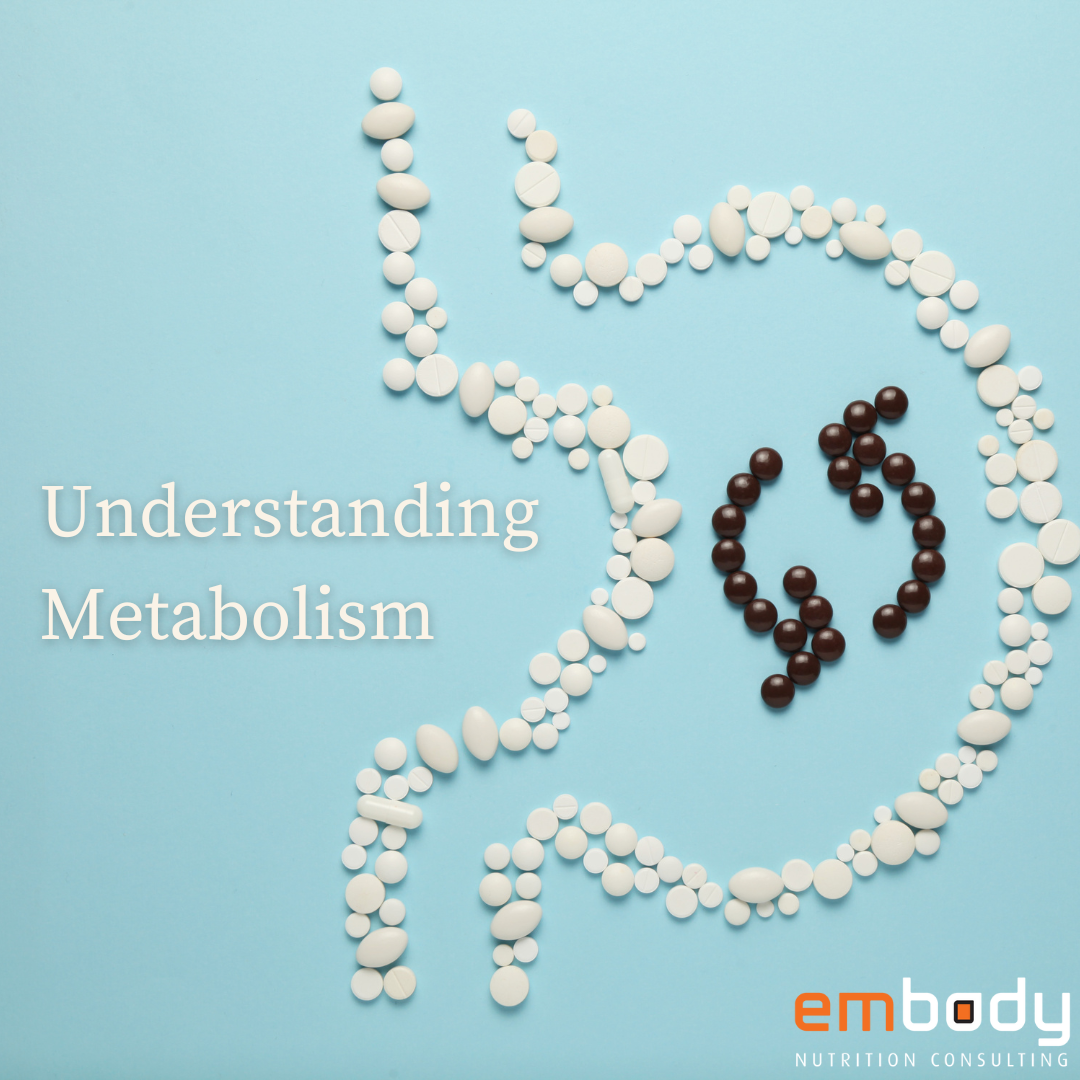I bet you’ve heard the word ‘metabolism’ thrown around, especially in conversations relating to food. But have you ever stopped to think about what metabolism actually is?
Simply put, your metabolism is what turns the food we eat into energy so that we are able to complete all the things we need to get done every day, like studying, going to school or work and exercise!
Leaning about metabolism and understanding how it works and how your body burns energy can help to guide some healthy lifestyle decisions, such as increasing exercise or making the right food choices for you.
Metabolism is defined as all the chemical processes required to support the cells in our body, and to maintain our lives. Metabolic processes are categorised into 2 types: Catabolism and Anabolism.
- Catabolism involves the breakdown of molecules into small substances
- Anabolism involves building bigger molecules
- Generally catabolic processes release energy and anabolic processes use energy.
The process of metabolism involves many different enzymes (a type of protein in our bodies) to make these chemical reactions happen quickly enough to sustain life. To make sure these processes all run smoothly, they are regulated by other molecules in our bodies such as hormones and substrates, to maintain homeostasis (equilibrium), so that our bodies can function normally, or as they were intended.
The amount of energy our bodies need to complete all these processes at rest, is called our basal metabolic rate (BMR), and is slightly different for every single person. Our BMR is influenced by factors such as body size and composition, sex and age.
- People who have a larger muscle mass compared to fat mass, burn more kilojoules (energy) when at rest.
- Men generally tend to have more muscle mass and less fat stores than women, and therefore burn more kilojoules (energy) when at rest.
- As we age, we tend to lose muscle mass and therefore slows the rate of burning kilojoules (energy).
One of the main catabolic processes in metabolism is the breakdown of the nutrients found in food, into smaller molecules that our bodies can use for energy. This process begins in the mouth, where enzymes from our saliva are added to food and start the breakdown process of our food as we chew.
This process continues along the digestive tract until eventually all carbohydrates are broken down into smaller molecules called monosaccharides, proteins into amino acids and fats/lipids into fatty acids. These nutrients are absorbed into the blood stream and transported to cells where they can be used for energy.
This is why food is such an important part of our lives, because our bodies need it to fuel all the metabolic reactions that we need to keep us alive!
So in short, your metabolism is the process of our body converting the things you eat and drink into energy. Your body uses this energy to not only keep you alive, but to fuel your activity every day.

